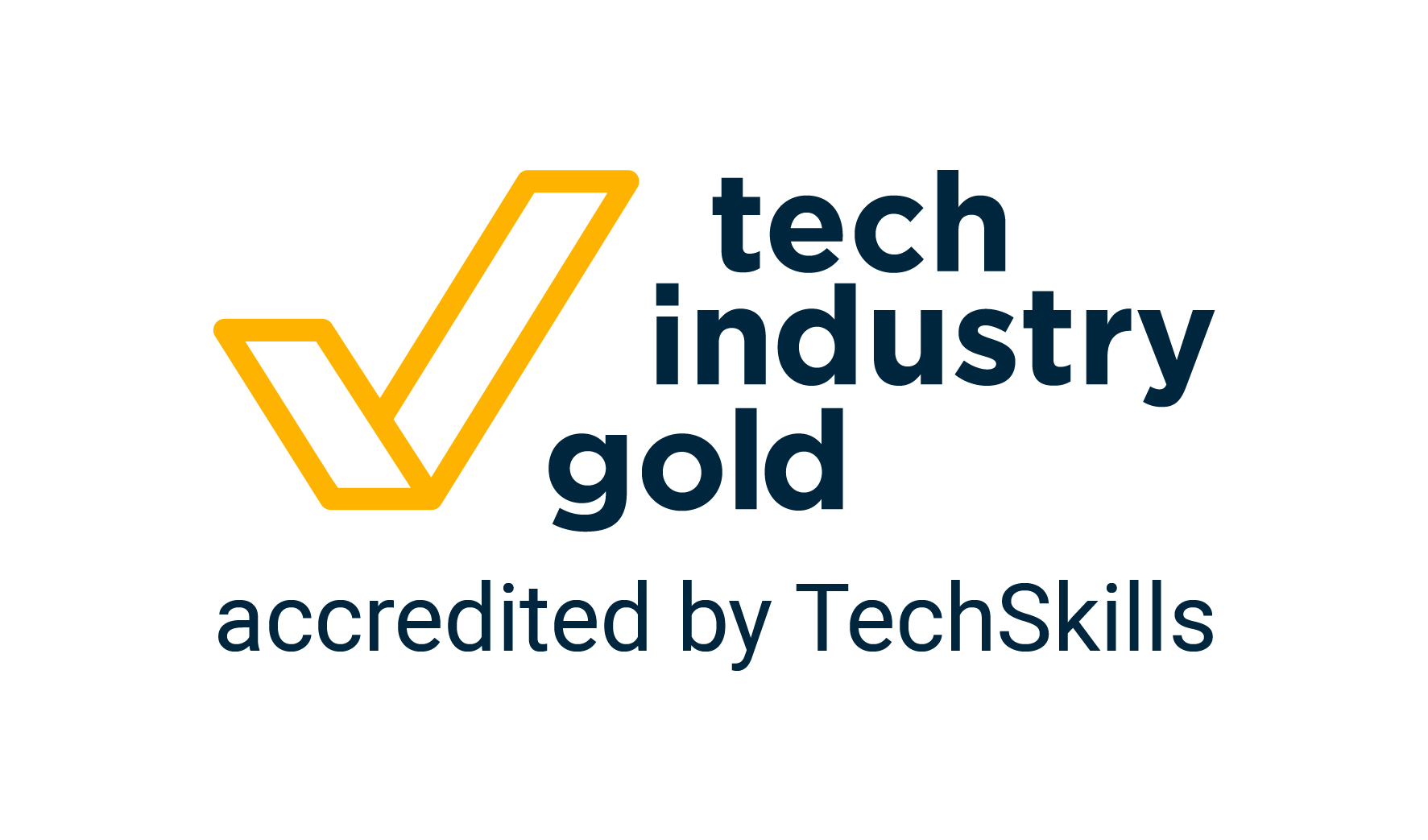Digital and Technology Solutions, BSc Hons (Degree Apprenticeship)
Our digital and technology solutions degree apprenticeship develops the technology and business skills that apprentices need to succeed as IT professionals.
Degree apprenticeships enable apprentices to gain industry-relevant skills, with most learning based in the workplace. Employers lead staff development, with course fees subsidised by government funding.
Our degree apprenticeship in digital and technology solutions brings together academic learning and on-the-job training. Apprentices get the skills to meet the needs of employers through training in technology solutions, problem solving and modelling. They also get an overview of business operations in the workplace.
The programme has been carefully designed with employers to ensure that the learners acquire over a four-year period the knowledge, skills and behaviours of a software engineer whose role encompasses the entire solution development lifecycle, from gathering and analyzing requirements to designing, coding, testing, implementing, and supporting software solutions. They are responsible for applying software engineering principles throughout these stages, ensuring that security considerations are integrated into the process. In addition to developing new code, Software Engineers also maintain and improve existing systems by troubleshooting, reverse engineering, and performing root cause analysis.
This digital and technology solutions degree apprenticeship has been accredited by Tech Industry Gold accreditation which is the premier standard for tech and digital education programs. It signifies a commitment to excellence, career readiness, and industry alignment.
Degree apprenticeship
Applications are made through the apprenticeships programme.
School
Location
Duration
4 years part-time
Start month
September
Fees information
For fee information related to this course, please see fees section below.
What you should know about this course
What you will study
Year 1
Students are required to study the following compulsory modules.
- Project Management (15 credits)
- Programming Foundations (15 credits)
- Fundamentals of Electrical, Electronic and Computer Engineering (30 credits)
- Applied Engineering Practice (Level 4, 30 credits) (30 credits)
Year 2
Students are required to study the following compulsory modules.
- Client and Technology Requirements Management (15 credits)
- Computer Architectures and Operating Systems (15 credits)
- Introduction to Computer Networking (15 credits)
- Introduction to Business Cyber Security (15 credits)
- Mobile Applications for Engineering (15 credits)
- Software Engineering (15 credits)
- Applied Engineering Practice (Level 4, 30 credits) (30 credits)
Year 3
Students are required to study the following compulsory modules.
- Digital Business (15 credits)
- Data, Information and Knowledge (30 credits)
- Big Data and Data Analytics (15 credits)
- Applied Engineering Practice (Level 5, 30 credits) (30 credits)
Year 4
Students are required to study the following compulsory modules.
- Leadership (15 credits)
- Web Systems Engineering (15 credits)
- Research Proposal and Portfolio (30 credits)
- Synoptic Project (30 credits)
About the course team
Welcome to our Degree Apprenticeship course. When you join us, you'll be taught by an experienced team whose expertise and knowledge closely reflects the modules of this course. The team includes senior academics, professional practitioners with industry experience, lab technicians, and external experts who provide guest lectures on some modules. Our PhD researchers also offer lab support, which our undergraduate students find very useful.
Come and meet us
We are offering virtual events so that you can still experience how Greenwich could be the right university for you.
Next Open Days
Got a question?
To find out more about our Open Days and Campus Tours or if you need any assistance, please email opendays@gre.ac.uk.
Entry requirements
Applicants must be employed by a sponsoring organisation within the UK. Programme-specific entry requirements apply, as agreed with the sponsoring organisation.
Typical entry requirements for our engineering apprenticeship degrees are as follows:
104 tariff points from:
- A-levels (subjects may be specified by your employer). Preferred subjects would be mathematical and a science-based subject.
- An appropriate BTEC National award (90+ credits).
- A recognised Access to Engineering course.
- Other relevant qualifications, if accepted by your employer, including progression from an appropriate Level 3 apprenticeship programme.
- Relevant experience, including experience gained from voluntary activities.
You will also need GCSE in English (language or literature) and maths at grade 4/C, or equivalent qualifications.
For more information, use our contact form or call us on 020 8331 9000.
You can also read our admissions policy.
For more information, use our contact form or call us on 020 8331 9000.
You can also read our admissions policy.
Further information about entry
To be eligible for entry to this course you should be employed in this field.
Available to overseas students?
No
Can I use Prior Learning?
Find out more on our Recognition of Prior Learning pages.
How you will learn
Teaching
Learning takes place through a combination of timetabled learning and independent study.
You can view more information about how each module is taught within our 'What you will study' section.
Seminars and workshops enable you to discuss and develop your understanding of topics covered in lectures in smaller groups. You will also be able to meet your personal tutor. Timetabled learning may fall between 9am and 9pm depending on your courses and tutorials.
Class sizes
Common first year modules across Engineering programmes results in large lecture groups of 100+ students. However, in order to enhance your learning experience, practical class sizes typically vary from 10-30 students depending on the module. Similarly, tutorials operate in the same way as practical sessions with class sizes varying according to the nature of the module being studied.
Independent learning
As an apprentice, you spend the majority of your time in the workplace, gaining hands-on knowledge of the organisation and contributing to the effective running of the laboratory. Apprentices must allocate 20% of their time for learning outside the job, including self-study and attending university.
Apprentices are expected to work outside of their university contact hours to complete any additional reading, homework and tutorial preparation, and to work on their final assessment report for each module.
Overall workload
Each module you study towards this degree is worth 15 or 30 credits. These represent around 150 or 300 study hours respectively. If you receive 100 contact hours for a 30-credit module, you should expect to commit 200 hours to independent study to complete it successfully.
Assessment
You can view how each module is assessed within our 'What you will study' section.
Each course has formal assessments which count towards your grade. Some courses may also include 'practice' assignments, which help you monitor progress and do not count towards your final grade.
Feedback summary
University policy is to give feedback on assignments within 15 working days of the coursework submission date. Examination results will be available within 28 days.
Dates and timetables
Full teaching timetables are not usually available until term has started. For any queries, please call 020 8331 9000.
Fees and funding
Tuition fees
The course fees are shared between government and employers. Visit our degree apprenticeships pages to find out how the cost of your course is met.
Other costs
Apprenticeships are paid for by employers, not apprentices.
Employers with a payroll of more than £3 million can use their apprenticeship levy contributions to pay for places on apprenticeship programmes.
Any business with a payroll below £3 million is eligible for government funding that will cover at least 95% of the cost of an apprenticeship programme.
Mode of study
Select from the dropdown below.
| Course level | |
| UCAS code | |
| Duration | |
| Location |







